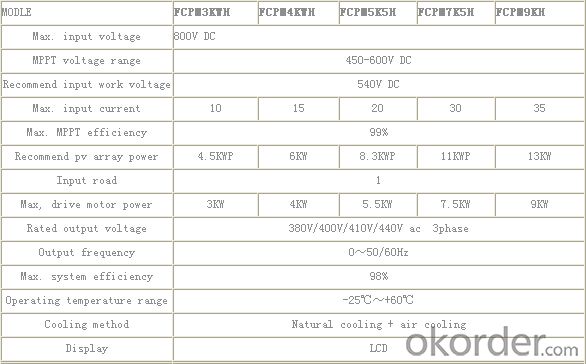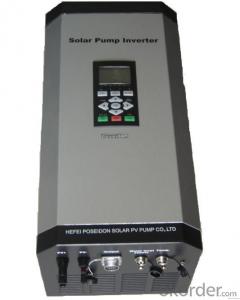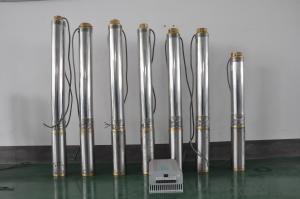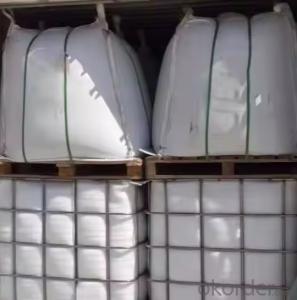Solar pump inverter FCPM5K5H
- Loading Port:
- China Main Port
- Payment Terms:
- TT OR LC
- Min Order Qty:
- -
- Supply Capability:
- -
OKorder Service Pledge
Quality Product, Order Online Tracking, Timely Delivery
OKorder Financial Service
Credit Rating, Credit Services, Credit Purchasing
You Might Also Like
Solar pump inverter FCPM5K5H Product Description:
Product Description:
Solar water pumping system is constructed with solar panel array,solar pump inverter and AC water pump, DC current produced from solar panel will be delivered to solar pump inverter,and it will convert it into AC current to drive water pump,and will automatically regulate output frequency according to sun radiance intensity,maximally realize MPPT tracking function.
Product Features
Adopting the proposed dynamic VI maximum power point tracking (MPPT) control method, with fast response, and reliable operation, achieves efficiency of 99%.
Designed with variable frequency driver, greatly improves efficiency
Extremely high efficiency
Digital mode control, with automatic operation and manual operation mode options
Complete protection functions
Adopts intelligent IPM module, with high reliability
LCD display and operation panel, in real time presents operating data
Optional for water level measurement and control circuit
Applicable for general ACC pumps, like centrifugal pump, piston pump etc.
Independent intellectual property; Highly effective, the redundant reliability, exempts the maintenance and the long life.
The pumps are soft started, fully protected.
No batteries are used. So better Sunlight, more water
Datasheet.

- Q:Can a solar pump be used for industrial purposes?
- Yes, a solar pump can be used for industrial purposes. Solar pumps are increasingly being used in various industrial applications such as agriculture, manufacturing, mining, and water treatment. These pumps are powered by solar energy, which makes them environmentally friendly and cost-effective in the long run. Solar pumps are capable of delivering high flow rates and pressures, making them suitable for industrial operations that require water supply, irrigation, or fluid transfer. They can be used for pumping water from wells, rivers, lakes, or reservoirs, and can also be integrated into existing water systems or networks. One of the key advantages of using a solar pump for industrial purposes is the potential for significant cost savings. Solar energy is a renewable resource, and once the initial installation costs are covered, the ongoing operational expenses are minimal. This makes solar pumps a reliable and cost-effective solution, particularly in remote or off-grid locations where traditional electricity supply may not be available or affordable. Furthermore, solar pumps are often equipped with advanced technologies and monitoring systems that optimize their performance and ensure efficient water management. These pumps can be automated, allowing for remote control and monitoring, which is especially useful in industrial settings where continuous operation and precise water supply are crucial. In summary, a solar pump can indeed be used for industrial purposes. Its ability to harness solar energy, cost-effectiveness, and reliability make it a sustainable and viable option for industrial operations that require water supply, irrigation, or fluid transfer.
- Q:How does a solar pump help in reducing maintenance costs?
- A solar pump helps in reducing maintenance costs by eliminating the need for fuel or electricity, which are typically required for traditional pumps. As solar pumps operate solely on solar energy, they have lower running costs and require minimal maintenance. Additionally, solar pumps have fewer moving parts, reducing the risk of mechanical failures and the need for frequent repairs. This results in significant savings in maintenance and operational expenses over the long term.
- Q:Are there any limitations to the suction lift capability of a solar pump?
- Yes, there are some limitations to the suction lift capability of a solar pump. One of the main limitations is the maximum depth from which the pump can effectively lift water. The suction lift capability decreases as the depth increases, and there is a point where the pump may not be able to lift water anymore. Additionally, the efficiency of the pump decreases with higher suction lifts, which can affect its overall performance. It is important to consider these limitations and choose a solar pump that is suitable for the specific application and water source conditions.
- Q:How does the installation complexity of a solar pump compare to a traditional electric pump?
- The installation complexity of a solar pump is generally less complex compared to a traditional electric pump. This is primarily because solar pumps do not require an extensive electrical setup or connection to the power grid. Solar pumps rely on photovoltaic panels to convert sunlight into electricity, which is then used to power the pump. The installation process typically involves positioning the solar panels in a location that receives optimal sunlight exposure and ensuring a secure mounting system. The panels are then connected to the pump, often through a controller or inverter that regulates the power flow. On the other hand, traditional electric pumps require a dedicated power source, usually from the electrical grid, which involves more complex electrical wiring and connections. It may require the assistance of an electrician to properly install the pump and ensure compliance with local electrical codes. Additionally, traditional electric pumps often require a considerable amount of infrastructure, such as power lines and transformers, which can add to the complexity of installation. Furthermore, solar pumps are typically more modular and portable compared to traditional electric pumps. This allows for easier installation and relocation if needed, without the need for extensive rewiring or infrastructure modifications. Overall, the installation complexity of a solar pump is generally lower than that of a traditional electric pump, thanks to the simplicity of the solar power system and the lack of reliance on the electrical grid.
- Q:How does a solar pump handle water with high levels of pesticides or herbicides?
- A solar pump does not have any specific mechanism to handle water with high levels of pesticides or herbicides. However, it can still pump water containing these substances. The efficiency of removing or diluting the pesticides or herbicides would depend on the specific filtration system, if any, attached to the solar pump. To effectively handle water with high levels of pesticides or herbicides, additional treatment methods such as activated carbon filters or advanced oxidation processes may be required.
- Q:Can a solar pump be used in areas with limited sunlight?
- A solar pump can still be used in areas with limited sunlight, but its efficiency and performance may be affected. The amount of sunlight directly impacts the pump's ability to generate power and pump water. In areas with limited sunlight, the pump may operate at a reduced capacity or require additional energy sources to compensate for the lack of sunlight.
- Q:How do I ensure the durability of the solar pump system in harsh environmental conditions?
- To ensure the durability of a solar pump system in harsh environmental conditions, there are a few key steps you can take. Firstly, choose a high-quality, ruggedized solar pump that is specifically designed to withstand harsh conditions such as extreme temperatures, dust, and humidity. Additionally, ensure that the pump is installed correctly, following the manufacturer's guidelines and recommendations. Regular maintenance and cleaning, especially in dusty or sandy environments, are crucial to prevent clogging or damage to the pump components. Finally, protect the system with appropriate enclosures or covers to shield it from direct exposure to harsh elements.
- Q:Can a solar pump be used for water supply in a school or educational institution?
- Yes, a solar pump can definitely be used for water supply in a school or educational institution. Solar pumps are an eco-friendly and cost-effective solution that can provide a reliable source of water for various purposes such as drinking, sanitation, and irrigation. They can be easily installed and operated, requiring minimal maintenance and no electricity costs. Additionally, using a solar pump aligns with the principles of sustainability and renewable energy, which can be taught and promoted within an educational setting.
- Q:How does a solar pump handle water pressure?
- A solar pump handles water pressure by utilizing the power generated from solar panels to operate a motor or pump. The pump is designed to handle the specific water pressure requirements of the system, ensuring efficient water delivery while maintaining the necessary pressure levels.
- Q:Can a solar pump operate at night or on cloudy days?
- Negative, a solar pump is incapable of functioning during nighttime or on cloudy days. The operation of solar pumps hinges upon the presence of sunlight as it generates the indispensable energy required for the pump's functioning. Absent sunlight, there exists no energy source to power the pump, rendering it incapable of operation during nighttime or on cloudy days when sunlight is inaccessible.
1. Manufacturer Overview |
|
|---|---|
| Location | |
| Year Established | |
| Annual Output Value | |
| Main Markets | |
| Company Certifications | |
2. Manufacturer Certificates |
|
|---|---|
| a) Certification Name | |
| Range | |
| Reference | |
| Validity Period | |
3. Manufacturer Capability |
|
|---|---|
| a)Trade Capacity | |
| Nearest Port | |
| Export Percentage | |
| No.of Employees in Trade Department | |
| Language Spoken: | |
| b)Factory Information | |
| Factory Size: | |
| No. of Production Lines | |
| Contract Manufacturing | |
| Product Price Range | |
Send your message to us
Solar pump inverter FCPM5K5H
- Loading Port:
- China Main Port
- Payment Terms:
- TT OR LC
- Min Order Qty:
- -
- Supply Capability:
- -
OKorder Service Pledge
Quality Product, Order Online Tracking, Timely Delivery
OKorder Financial Service
Credit Rating, Credit Services, Credit Purchasing
Similar products
New products
Hot products
Hot Searches
Related keywords




























